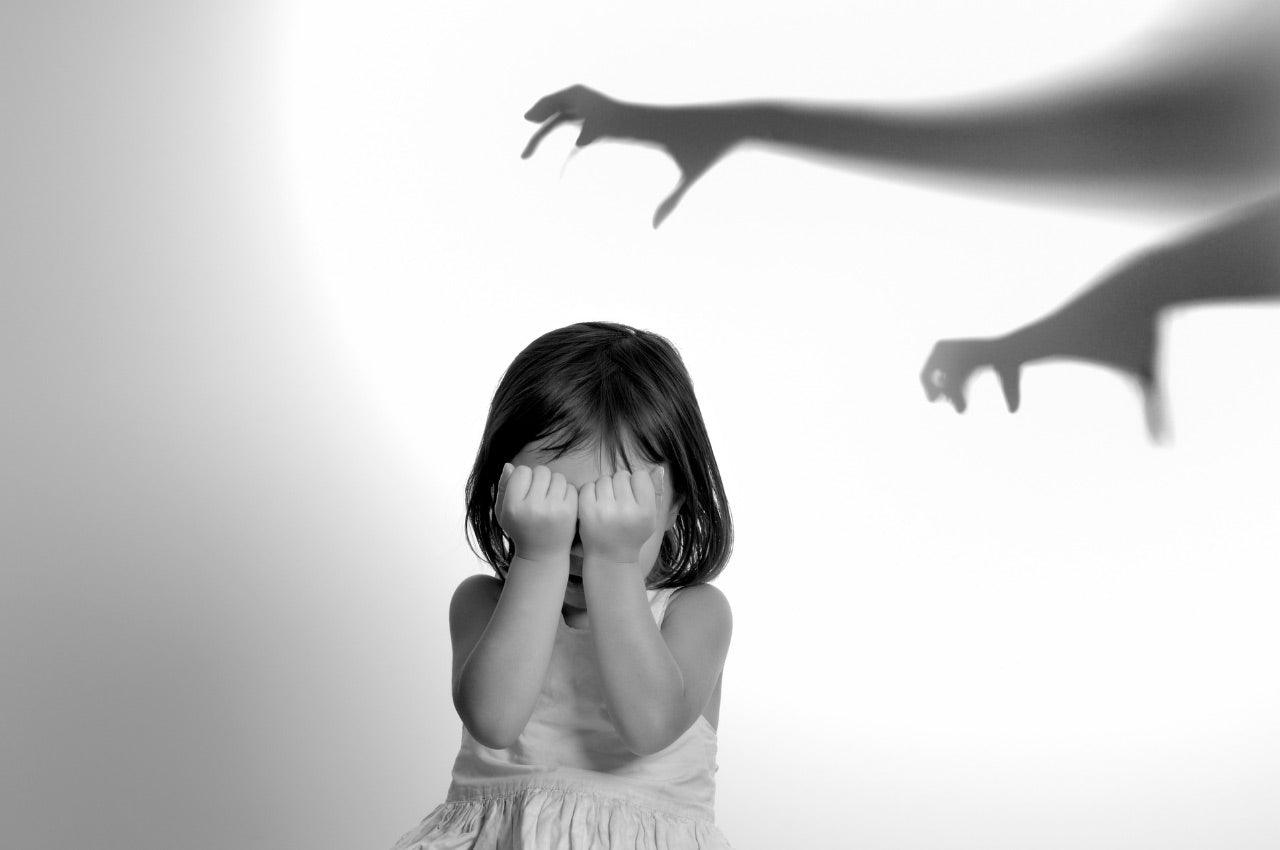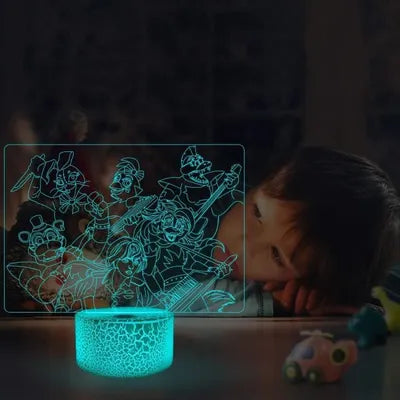As a parent, you might start noticing your child waking up at night around 18 months. And if you've read many of our blog posts, you've probably learned a lot about the causes of these nocturnal awakenings: associations with sleep , hunger, teething , illness , schedule problems , etc.
But there's one cause for nighttime waking that many parents of toddlers don't expect: nightmares and night terrors .
Your child may start having nightmares or night terrors . Nightmares can be frightening for children and may cause them to wake up in the middle of the night . Night terrors are similar to nightmares, but are usually more intense and cause the child to scream or act violently. These events may continue through the preschool and school years.
What causes nightmares and night terrors? When do they start? And what is the difference between the two?
In this article, we'll look at nightmares and how to deal with them. In another article we will talk about night terrors and explain the differences between nightmares.
Your Baby or Preschooler's Nightmares: When They Start and Why They Happen
Do you ever wake up from a nightmare in the middle of the night? Nightmares can be very scary, but they are also very normal. Most people have nightmares at some point in their lives.
Nobody knows for sure when nightmares start, but we do know that they occur during the active phase of sleep called REM sleep (REM, Rapid Eye Movement). Babies experience REM sleep just like us adults, so it's possible for a baby to have dreams and nightmares.
There are many different theories as to why nightmares occur, but the most popular theory is that they are simply our brain's way of dealing with stress and anxiety . When we have a scary dream, our brain actually releases all the accumulated anxiety and stress. Therefore, we feel much better once the nightmare is over.
As people sleep, their REM cycles lengthen. The first REM cycle is quite short, but each subsequent cycle is longer, until the last lasts almost an hour. This means that most people (children and adults) tend to have dreams or nightmares in the second half of the night .
Childhood nightmares can be seen as young as one year old, although many parents don't see signs until their child is a bit older.
Babies and young children can have pretty scary dreams, but it's hard to know exactly how complex their dreams are. By the age of two, when the imagination really begins to come alive, nightmares can become very specific. However, at this age, they may not fully understand that the dream is over when they wake up. So they can still be a little scared later.
As your child grows, they will gradually understand the difference between dreams and reality. At the age of 5, he will better understand this distinction. Even when your child is older, that doesn't mean the dreams won't be scary anymore. However, he will no longer need your help to deal with it.
There is no definitive cause for nightmares, but certain problems or situations can make a young child more prone to nightmares. These include the following issues:
Disease
When they feel sick and have a fever, many children are prone to nightmares.
Excessive tiredness
Children who are excessively tired or exhausted tend to have more nightmares than those who are well rested. This is likely because when our bodies are tired, it's harder to relax and fall asleep, which can lead to more frightening dreams. Therefore, if your child has a lot of nightmares, it may be worth trying to get him to rest more.
Irregular sleep patterns.
When you don't have bedtime habits, it can lead to nightmares. Nightmares can be caused by different things, such as lack of sleep or stress. However, there are ways to prevent nightmares, including developing good bedtime habits.
The stages of development.
When children reach new developmental milestones, such as learning a new skill, they are more likely to have nightmares. This is because their brain processes all the new information they learn and incorporates it into their dreams. While nightmares can be unsettling, they are a normal part of development and usually go away over time.
Stress or anxiety
Anxiety can often cause nightmares in children. This may be due to outside stressors, such as a move or the birth of a new sibling, or an underlying anxiety disorder. Nightmares can be very frightening for children and cause them to lose sleep. If your child is having nightmares, talk to them about what's going on and try to help them find ways to overcome their anxiety.
A traumatic event
If your toddler or preschooler has experienced a traumatic event, they may have repeated nightmares afterwards. Indeed, after a traumatic event, the brain sometimes continues to process the images and feelings associated with it. This can lead to sleep disturbances and nightmares.
How do you deal with your toddler or preschooler's nightmares?
Do you know how to deal with your toddler or preschooler's nightmares?
Nightmares can be pretty scary for kids, but luckily there are some things you can do to help them feel better.
First, it's important to understand that children often have nightmares they can't even remember . So even if your child doesn't tell you about their nightmare, that doesn't mean it didn't happen.
If you wake up in the middle of the night and find that your child is having a nightmare, you will need to comfort him as best you can. Also keep the following points in mind when trying to comfort your child after a nightmare:
Your child's fear is real.
The events of his nightmare may be fictional, but his fear is not. Respect your toddler or preschooler's feelings and provide lots of comfort and reassurance. Physical comfort is particularly useful: give him lots of hugs! This will help him feel safe and reassure him that you are there for him.
Don't add more fear to your child by overreacting.
Many parents find that their child is scared and cries during the night. This can be very upsetting for both child and parent. However, it is important to remember that your child expects you to guide him. If you remain calm, you will help reassure and relax your child. There are many things you can do to comfort your child, like sing them a song, read them a book, or just cuddle them.
Some techniques can work, but they can also backfire.
Some parents resort to cute techniques to put their children to sleep, such as spraying lavender-scented water at bedtime, making them believe it's a magic spray, to ward off monsters, or chase away monsters in the room.
However, be aware that these methods can also backfire, as they reinforce your child's idea that monsters and scary creatures really exist. In some cases, it's best to remind your child frequently that monsters don't exist and that nothing in their room can harm them.
Be careful not to create long-term habits by trying to solve a short-term problem.
If you bring your child to your bed after a bad dream or want to cuddle your little one after a nightmare, go for it! But be careful not to make it a habit that will be hard to break. Toddlers can develop bad sleep habits quickly, so make sure the solutions you use are ones that won't cause long-term problems.
it is important to understand that children often have nightmares that they do not even remember. So even if your child doesn't tell you about their nightmare, that doesn't mean it didn't happen. It's also helpful to know what kinds of things can cause nightmares in a toddler or preschooler and how to deal with them after waking up in the middle of the night.
Fortunately, there are many ways parents can help their children feel better without creating long-term habits by trying to solve a short-term problem. If any of these techniques work well for you, let us know! We would love to hear from our readers so that we can continue to provide content on this topic as needed.









